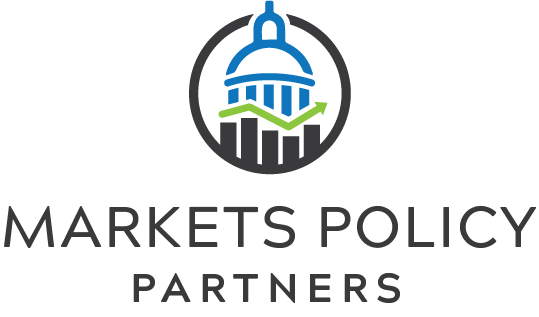Summary and Price Action Rundown
Global risk assets are rising this morning as investors look ahead to key earnings reports and global central bank meetings this week, while closely monitoring plans to reopen some segments of the economy. S&P 500 futures point to a 1.1% higher open, which would extend yesterday’s 1.5% gain that put year-to-date downside at 10.9% and the decline from February’s record high at 15.0%. Equities in the EU are higher this morning as well, though Asian stocks were mixed overnight. Longer duration Treasury yields are holding yesterday’s modest upside, with the 10-year yield at 0.66%, while a broad dollar index is retracing more of last week’s upside but remains within its recent trading range. Oil prices are fluctuating near their 20-year lows from early last week, but the volatility is not spilling over into broader risk aversion.
Equities Increasingly Optimistic Ahead of High-Profile Earnings Releases
Though uneven first quarter (Q1) earnings have provided scant direction to equities thus far, indexes have been rallying sharply ahead of this week’s calendar of key reports. Today, investors will parse Q1 results from Google, Ford, 3M, Caterpillar, and Starbucks. The remainder of the week also features household names, including Facebook, Boeing, Microsoft, GE, and Tesla tomorrow, Apple, Amazon, Visa, McDonalds, and Comcast on Thursday, and ExxonMobil, Honeywell, Clorox, and Colgate Palmolive on Friday. Amazon will be of particular interest, with its stock at a record high and its delivery services taking on an even greater importance in people’s lives during the widespread lockdowns. Other companies reporting this week include D.R. Horton, Harley-Davidson, Southwest, Mondelez, Pfizer, United Airlines, UPS, Archer-Daniels-Midland, ADP, eBay, The Hartford, Mastercard, Qualcomm, and Yum! Brands. Thus far, earnings season has featured stark divergence between the corporate winners and losers from the pandemic. While companies like Netflix and Target have benefitted from increased subscribers and robust online sales, respectively, banks and credit card companies have had to aggressively prepare for credit deterioration. Brick and mortar retailers like JC Penney, which is in advanced bankruptcy talks with lenders, and travel sector companies have suffered an exceptionally adverse impact. With 133 of the S&P 500 companies having reported, 62% have surprised to the upside on sales and 67% have topped earnings expectations. However, aggregate earnings have come in 4.3% below estimates thus far.
Fiscal and Monetary Support Remain in Focus
As market participants await tomorrow’s conclusion of a two-day Federal Reserve meeting, the prospect for swift passage of CARES Act 2.0 appears to be improving on Capitol Hill. Though no new policy actions are expected to be unveiled by the Fed tomorrow, yesterday it announced an expansion of its $500 billion Municipal Liquidity Facility to allow access for more cities and counties and extended the duration of the program. Meanwhile, only days after President Trump signed the latest pandemic relief bill, the focus is already shifting to the next round of support, the CARES Act 2.0. For context, the latest bill that President Trump signed on Friday provided an additional $320 billion for the Small Business Administration’s pandemic relief loan facility, the Payroll Protection Program (PPP), of which $30 billion is set aside for smaller banks and credit unions and another $30 billion will be funneled through even smaller lenders. Reports suggest that this amount could be exhausted within days. Additionally, $60 billion will go to additional Economic Injury payouts, $75 billion to hospitals, and $25 billion to fund testing efforts, $18 billion of which is directly to states’ testing efforts. Yesterday, Senator McConnell indicated that the Senate “probably will” pass another economic support package, while also softening his stance on state and local funding aid and backing off his advocacy of state bankruptcy as a potential avenue for resolving budgetary woes. Additionally, reports suggested that the administration is floating the idea of a “negative payroll tax” and a White House spokesperson said that infrastructure spending will be a “big part” of CARES Act 2.0.
Additional Themes
Oil Prices Near Lows Again – International benchmark Brent crude and US benchmark WTI prices have returned to last week’s multi-decade lows, with WTI again underperforming. Analysts noted that selling of the front-month June WTI future by popular oil ETF USO contributed to the outsized declines for this contract to below $12 per barrel, with the July WTI contract trading around $19. This comes after USO rebalanced its oil futures holdings multiple times last week into longer duration contracts in a bid to avoid implosion and escape the most pronounced volatility. For context, traders abandoned the expiring May contract last week amid aversion to physical delivery due to dwindling storage capacity. A recent Goldman Sachs report estimated that storage capacity may be exhausted within as little as three to four weeks.
GM Conserves Capital – With their US plants shuttered since mid-March, General Motors has suspended its quarterly dividend and stock buybacks to preserve cash during the pandemic.
